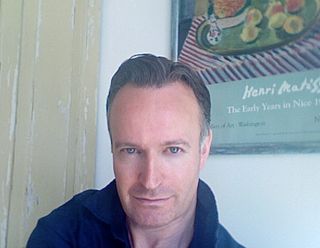A Quote by Jesmyn Ward
My people are still poor. They're still working class. All of the characters that I write about are inspired by the community that I'm from.
Related Quotes
The really successful work in England tends to be working-class writers telling working-class stories. The film industry has been slow to wake up to that, for a variety of reasons. It still shocks me how few films are written or made in England about working-class life, given that those are the people who go to movies.
I grew up in a working-class community. I come from a big family. I knew Donald Trump would win because I knew he is what poor Americans think a rich person looks like. And I knew that Hillary Clinton would annoy voters in their tens of millions, because she basically sucked at communicating with poor people and seemed like a person who'd been powerful and rich for decades. She was a disastrous candidate. I mean, she was up against a psychopath and she still lost. The country's thinking was beyond her, literally.
When I see an entire community disenfranchised, it disturbs me. Not that I'm a message guy, per se. I write about people. I like to write about human beings, not crap political rhetoric. I've tried to avoid that all my life. When I wrote about soldiers in Vietnam, I wasn't trying to make a political statement. I was trying to write about how screwed things were for soldiers, and how they still are.
I grew up in the midst of poverty but every black kid that I knew could read and write. We have to talk about the fact that we cannot educate for critical consciousness if we have a group of people who cannot access Fanon, Cabral, or Audre Lorde because they can’t read or write. How did Malcolm X radicalize his consciousness? He did it through books. If you deprive working-class and poor black people of access to reading and writing, you are making them that much farther removed from being a class that can engage in revolutionary resistance.






































